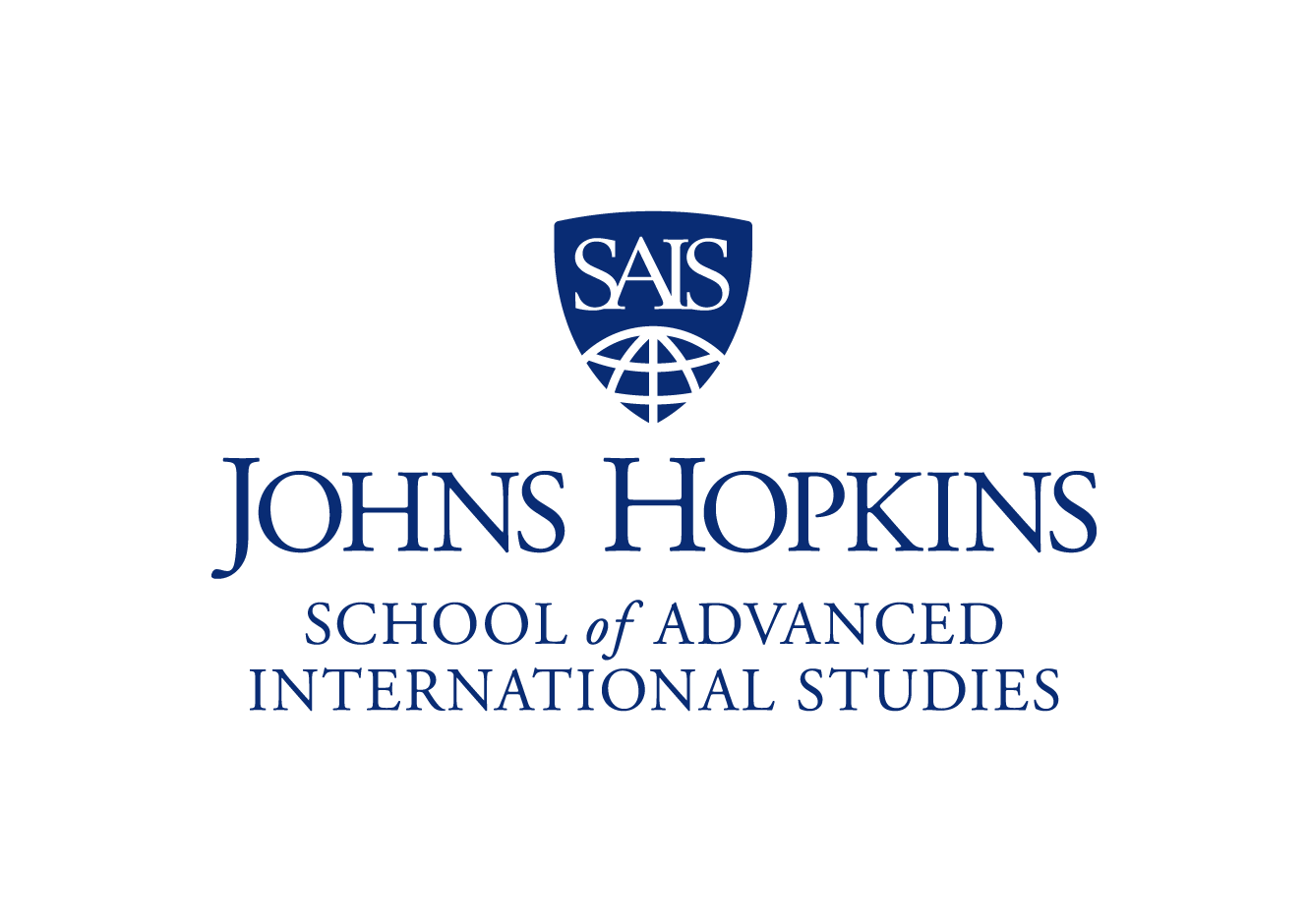Click the Playlist button in the upper-left corner to select other panel videos.
The Middle East Institute (MEI) and the Johns Hopkins School of Advanced International Studies (SAIS) Conflict Management Program presented a half-day conference bringing together analysts, diplomats, and policymakers to discuss the domestic and regional challenges facing Iraq. U.S. Deputy Assistant Secretary of State Joseph S. Pennington provided keynote remarks.
AGENDA
11:30AM-12:00PM | Arrival and Registration
12:00PM- 12:05PM | Introduction and Keynote Speaker
Randa Slim
Director of the Track II Dialogues initiative, MEI; fellow, Johns Hopkins SAIS Foreign Policy Institute (SAIS-FPI)
12:05PM- 1:00PM | Keynote Remarks and Audience Questions
Joseph S. Pennington
Deputy assistant secretary for Iraq, U.S Department of State
Randa Slim (Moderator)
Director for Track II Dialogues, MEI; fellow, SAIS-FPI
1:00PM-2:30PM | Panel One: Status of and Challenges to Iraq's Political Compact
Rasha Al Aqeedi
Researcher, Al Mesbar Studies
Amb. Feisal al-Istrabadi
Founding director of the Center for the Study of the Middle East, Indiana University
Abbas Kadhim
Senior fellow, SAIS-FPI; president, Institute of Shia Studies
Bilal Wahab
Soref fellow, The Washington Institute for Near East Policy
Randa Slim (Moderator)
Director for Track II Dialogues, MEI; fellow, SAIS-FPI
2:30PM- 2:45PM | Coffee Break
2:45PM- 4:15PM | Panel Two: Iraq's Regional Opportunities: Perspectives from Iraq's neighbors
Mohammed Alyahya
Nonresident fellow, The Atlantic Council
Lisel Hintz
Assistant professor of international relations, Johns Hopkins School of Advanced International Studies (SAIS)
Seyed Hossein Mousavian
Middle East security and nuclear policy specialist, Princeton University
Amb. Fareed Yasseen
Ambassador of Iraq to the United States
Daniel Serwer (Moderator)
Scholar, MEI
4:15PM-4:20PM | Summation and Closing Remarks
Randa Slim
Director for Track II Dialogues, MEI; fellow, SAIS-FPI
Participant biographies
 Rasha Al Aqeedi
Rasha Al Aqeedi
Researcher, Al Mesbar Studies
Rasha Al Aqeedi is a researcher at Al Mesbar Studies and Research Center in Dubai, the United Arab Emirates. A native of Mosul, Iraq, she worked in various public sector posts between 2005 and 2011. Her research focuses on Islamist groups, radical ideology, identity politics, and more recently, the socio-political dynamics that led to Mosul’s fall to the Islamic State group, also known as ISIS, in 2014. AlAqeedi regularly contributes to Inside Iraqi Politics, UAE’s The National, and The American Interest.
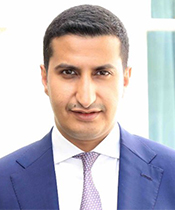
Mohammed Khalid Alyahya
Nonresident fellow, The Atlantic Council
Mohammed Khalid Alyahya is a Saudi Arabian political analyst and commentator who focuses on the Gulf, GCC-U.S. relations, and Middle East security. He is a nonresident fellow at the Atlantic Council's Rafik Hariri Center for the Middle East and a research fellow at the Gulf Research Center, and serves on the advisory board for the Future Trends in the GCC Program at Chatham House. He was an associate fellow at the King Faisal Center for Research and Islamic Studies from 2014 to 2015. His writing has been published in The New York Times, The Financial Times, The Guardian, Al-Monitor, The Telegraph, and by The Royal United Services Institute and Al Arabiya. His commentaries have also been featured on the BBC, MSNBC, and Bloomberg, in The Wall Street Journal and other outlets.
 Lisel Hintz
Lisel Hintz
Assistant Professor of International Relations, Johns Hopkins School of Advanced International Studies
Lisel Hintz is an assistant professor of international relations in the European and Eurasian studies program at Johns Hopkins University’s School of Advanced International Studies. She received her Ph.D. in political science from George Washington University. Bridging the subfields of international relations and comparative politics with a regional focus on Turkey, her research investigates how contestation over various forms of identity (e.g. ethnic, religious, gender, regional) spills over from domestic politics to shape, and be shaped by, foreign policy. Hintz’s work is published in the European Journal of International Relations, International Journal of Turkish Studies, Project on Middle East Political Science Series, and Turkish Policy Quarterly. Hintz has also contributed to Foreign Policy, The Washington Post, The Boston Globe, and BBC World Service.
Amb. Feisal al-Istrabadi
Founding director of the Center for the Study of the Middle East, Indiana University
Amb. Feisal Amin Rasoul al-Istrabadi is the founding director of the Center for the Study of the Middle East at Indiana University—Bloomington, where he is also professor in the practice of international law and diplomacy at the Maurer School of Law and the School of Global and International Studies. From 2004 to 2010 he represented Iraq at the United Nations, having previously served as legal advisor to the Iraqi Foreign Minister during the negotiations leading to U.N. Security Council resolution 1546. in 2003-04, he was principal legal drafter of Iraq's interim constitution. His book, The Future of ISIS: Regional and International Implication, edited with Sumit Ganguly, is scheduled for publication in November 2017. Ambassador Istrabadi is a fellow of the American Academy of Arts and Sciences and member of the Council on Foreign Relations in New York.
Abbas Kadhim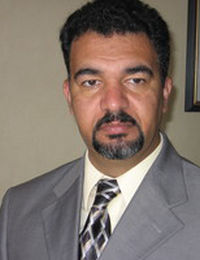
Senior Fellow, Foreign Policy Institute, Johns Hopkins School of Advanced International Studies; President, Institute of Shia Studies
Dr. Abbas Kadhim is an academic and author with research interests in Iraq, Iran, the Persian Gulf, and Islam. He earned a Ph.D. from the University of California, Berkeley in 2006. Between 2005 and 2013, Dr. Kadhim was an assistant professor of national security affairs/Middle East studies at the Naval Postgraduate School in Monterey, California, and a visiting scholar at Stanford University. Prior to joining SAIS, Dr. Kadhim held a senior government affairs position at the Iraqi Embassy in Washington. He is the author of Reclaiming Iraq: the 1920 Revolution and the Founding of the Modern State (Austin: University of Texas Press, 2012) and The Hawza under Siege: A Study in the Ba'th Party Archives (Boston University, 2013).
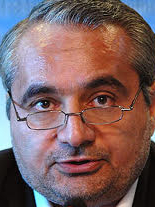 Seyed Hossein Mousavian
Seyed Hossein Mousavian
Middle East Security and Nuclear Policy Specialist, Princeton University
Seyed Hossein Mousavian is a former Iranian policymaker who served for more than a quarter century as an official in Iran’s government, working on foreign and security policy. He served as Iran’s ambassador to Germany (1990-1997), head of the foreign relations committee of Iran’s National Security Council (1997-2005), and spokesman for Iran in its nuclear negotiations with the international community (2003-2005). He is currently a Middle East security and nuclear policy specialist at Princeton University’s Woodrow Wilson School of Public and International Affairs.
Joseph S. Pennington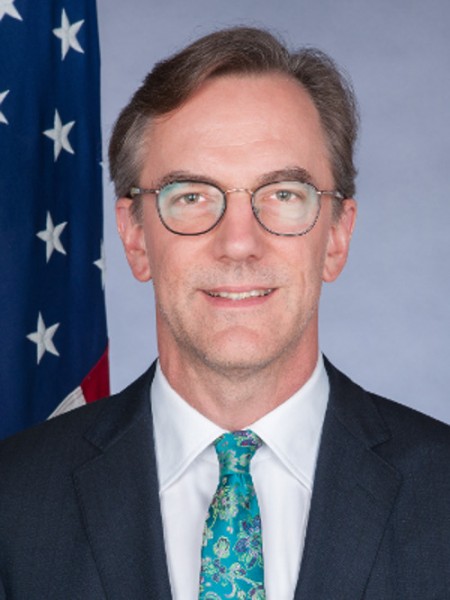 Deputy Assistant Secretary for Iraq, U.S Department of State
Deputy Assistant Secretary for Iraq, U.S Department of State
Joseph Pennington, a career member of the Senior Foreign Service, began his current assignment as deputy assistant secretary for Iraq in the Bureau of Near Eastern Affairs in December 2015. He served previously as director of the Office of Iraq Affairs after returning from a two-year assignment, 2013-15, as consul general at the U.S. Consulate General in Erbil in the Iraqi Kurdistan Region. Pennington served as deputy chief of mission at the U.S. Embassy in Prague, Czech Republic (2010-13) and held the same position in Yerevan, Armenia (2007-10). He worked as the U.S. Embassy spokesman in Ankara, Turkey (2002-06), as political-economic officer in Naples, Italy (2001-02), and headed the U.S. Embassy branch office in Mostar, Bosnia-Herzegovina (2000-01). He served as an economic officer at the U.S. Embassy in Sarajevo (1999-2000) and as political-economic officer at the U.S. Consulate in Adana, Turkey (1995-98). Pennington has also worked in the State Department’s Bureau of Economic and Business Affairs and at the U.S. Embassy in Moscow.
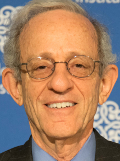 Daniel Serwer (moderator)
Daniel Serwer (moderator)
Scholar, MEI; director, Johns Hopkins University SAIS conflict management program
Daniel Serwer, an MEI scholar, is the director of the conflict management program at the Johns Hopkins School of Advanced International Studies (SAIS) and a senior fellow at the SAIS center for transatlantic relations. He served previously as vice president for the centers of innovation at the United States Institute of Peace (USIP), where he led peacebuilding and stability operations, and as executive director of the Hamilton/Baker Iraq Study Group. A retired member of the U.S. Senior Foreign Service, Serwer directed the State Department’s office for European analysis in the bureau of intelligence and research and served as U.S. special envoy and coordinator for the Bosnian Federation. His current interests focus on the civilian instruments needed to protect U.S. national security as well as transition and state-building in the Middle East, North Africa, and the Balkans. His book, Righting the Balance: How You Can Help Protect America, was published in November 2013.
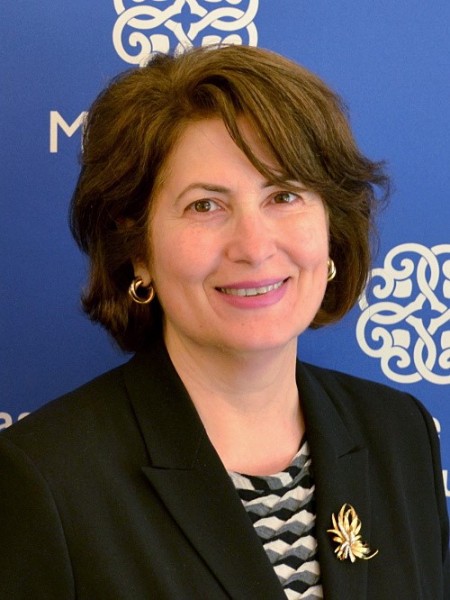 Randa Slim
Randa Slim
Director of the Track II Dialogues initiative, MEI; non-resident fellow, Johns Hopkins University SAIS Foreign Policy Institute
Randa Slim is director of the Track II dialogues initiative at MEI and a non-resident fellow at the Johns Hopkins University SAIS Foreign Policy Institute. A former vice president of the International Institute for Sustained Dialogue, Slim has been a senior program advisor at the Rockefeller Brothers Fund, a guest scholar at the U.S. Institute for Peace, a program director at Resolve, Inc., and a program officer at the Kettering Foundation. A long-term practitioner of Track II dialogue and peace-building processes in the Middle East and Central Asia, she is the author of several studies, book chapters, and articles on conflict management, post-conflict peace-building, and Middle East politics.
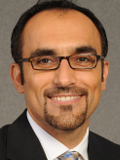 Bilal Wahab
Bilal Wahab
Soref fellow, The Washington Institute for Near East Policy (WINEP)
Bilal Wahab is a 2016-2017 Soref fellow at WINEP, where he focuses on governance in the Iraqi Kurdish region and in Iraq as a whole. He has taught at the American University of Iraq in Sulaimani, where he established the Center for Development and Natural Resources, a research program on oil and development. He earned his Ph.D. from George Mason University, his M.A. from American University -- where he was among the first Iraqis awarded a Fulbright scholarship -- and his B.A. from Salahaddin University in Erbil. Along with numerous scholarly articles, he has written extensively in the Arabic and Kurdish media.
 Amb. Fareed Yasseen
Amb. Fareed Yasseen
Ambassador of Iraq to the United States
Fareed Yasseen is Iraq’s ambassador to the United States since November 2016. He also served as Iraq’s Ambassador to France, 2010-2016. Initially trained as a physicist, he carried out research in Europe and the United States before getting involved in political activism and human rights advocacy. He has worked and consulted for various think tanks and UN agencies. Joining Iraq’s Ministry of Foreign affairs in 2004, he served as Head of Policy Planning twice, 2004-2006 and 2009-2010, separated by a secondment to Deputy President Abd al-Mahdi as diplomatic advisor. He is a member of the American Physical Society and the International Institute for Strategic Studies
Co-Sponored by:
